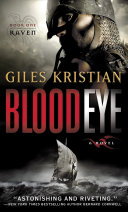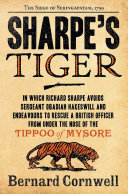Go back in time with this list of the best authors like Bernard Cornwell. Known for their historic and historical fiction books, they are sure to please.
London-based author Bernard Cornwell was born in 1944 as a “war baby.” His father, a Canadian airman, fell in love with his mother, a British Women’s Auxiliary Air Force service member. They did not marry, however, and a family adopted him in Essex. His adoptive family was quite religious, and as a young adult, he desired to escape. London University was his escape route, and after he graduated, he took work with BBC Television.
Through television work, he began to research the history of Northern Ireland. He met and fell in love with a visiting American and moved to America to be with her. Since he could not get a Green Card in America, he started writing, allowing him to earn a living and chase the American Dream without being traditionally employed.
Cornwell has multiple series, but the first was the Sharpe series, which has 25 books. He also wrote a series of books set during the American Civil War known as The Starbuck Chronicles and a trilogy set during King Arthur called the Warlord Chronicles. The Grail Quest novels and the 13 Saxon Stories reveal his impressive list of historical fiction works.
For more recommendations, you might also enjoy exploring best historical fiction books, authors like James Michener, best war books.
Why Bernard Cornwell Remains Essential in 2025
In our age of rapid technological change, Cornwell’s historical fiction provides something increasingly rare: deep immersion in worlds where honor, courage, and personal relationships mattered more than algorithms and social media. His meticulous research combined with propulsive storytelling offers modern readers both escape and perspective on how human nature remains constant across centuries.
What sets Cornwell apart in 2025: His military background gives his battle scenes unmatched authenticity, while his character development shows how ordinary people become extraordinary under pressure. The authors below share these qualities, offering readers the perfect blend of historical accuracy and compelling storytelling that makes the past feel immediate and relevant.
10 Must-Read Authors Like Bernard Cornwell
1. Caroline Alexander, 1956 -
Though she is known primarily for her nonfiction work, author Caroline Alexander writes in a narrative style that makes her books as enjoyable to read as the historical fiction of Bernard Cornwell. This British author was born in the United States to British parents but has traveled extensively throughout her life. She was one of the first female Rhodes Scholars and one of the first women to be part of the U.S. National Modern Pentathlon championships.
She started writing about her travels in graduate school, and two books, The Endurance and The Bounty, have made it to the New York Times bestseller list.
Why Cornwell fans love Alexander: Both authors understand that history’s most compelling stories are about human endurance under extreme conditions. Alexander’s narrative nonfiction reads like the best historical fiction, bringing past events to vivid life.
“It would seem that to Bligh, infliction of punishment was like sickness, and scurvy, something that had no place on a well-run ship. William Bligh had set out to make the perfect voyage.” — Caroline Alexander, The Bounty
2. David Anthony Durham
American novelist David Anthony Durham has lived in both the United States and Scotland, and his travels helped him write his historical fiction novels. His first book, Gabriel’s Story, was published in 2001 and is about African American settlers who headed to the American West. It won the 2002 Legacy Award for Debut Fiction and the John W. Campbell Award for Best New Writer. He writes about the American Civil War in Walk Through the Darkness, his 2002 novel. He also writes fantasy novels, including the Acacia Trilogy.
The Durham Advantage: Like Cornwell, Durham brings underrepresented perspectives to historical events, showing how individual courage shapes larger historical moments. Both authors excel at making readers care deeply about characters caught in the sweep of history.
“He had been born a slave. He emerged into the world with an ancient face, the color of wet brown sand, with black hair plastered to his skull.” — David Anthony Durham, Walk Through the Darkness
3. Juliet Barker, 1958 -
Juliet Barker writes about writers. She has books on The Brontës and Wordsworth, taking a closer look at the people behind famous literary works. She also writes about life in England in the 1300s, and her books are nonfiction and biographical. She was born and raised in Yorkshire and continues to live in the area as an adult. Her book The Brontës, published in 1994, won the Yorkshire Post Book Award and was on the shortlist for the AT&T Nonfiction Prize.
Historical Depth: Barker’s biographical approach mirrors Cornwell’s character-focused storytelling. Both authors understand that great historical writing comes from understanding the daily lives and personal struggles of people from the past.
“I am free to walk on the moors - but when I go out there alone - everything reminds me of the times when others were with me and the moors seem a wilderness, featureless, solitary, saddening.” — Juliet Barker, The Brontës
4. Conn Iggulden, 1971 -
Conn Iggulden was born in 1971 in London, where he attended school before enrolling at the University of London to study English. He worked as the head of the English department at Haydon School, then started writing in the early 2000s. His first book, The Gates of Rome, is a historical fiction book that covers the life of Julius Caesar and starts a five-book series. He also has a series on the Mongol warlords and the Wars of the Roses.
Writing has always been part of Iggulden’s life, and he continues to produce historical fiction novels today. He also has children’s books, including the Dangerous Books for Boys series.
Epic Scope: Iggulden shares Cornwell’s gift for bringing ancient and medieval warfare to life. Both authors create sweeping historical sagas that follow characters through multiple books, allowing readers to become deeply invested in their journeys.
“I have been distracted from my duty as a father to some extent, but there is no greater exercise to a man’s talents than the upbringing of his son.” — Conn Iggulden, The Gates of Rome
5. Simon Scarrow, 1962 -
British author Simon Scarrow is known for his Eagles of the Empire series. This historical fiction set of novels is set in the Roman Empire and follows the Roman military. The series has 22 books, from Under the Eagle in 2000 to his most recent, Death to the Emperor, in 2022. In addition, he has several other historical fiction series and standalone novels.
Before starting his successful career, Scarrow attended the University of East Anglia and worked as a college professor. He traveled extensively as a child, which helped him gain a love for history and culture.
Military Authenticity: Like Cornwell’s Sharpe series, Scarrow’s Roman military novels combine detailed knowledge of ancient warfare with compelling character relationships. Both authors understand that great military fiction is ultimately about camaraderie and survival.
“All you need now is deployment of the appropriate tactics to manoeuvre her into an advantageous position and then secure your conquest.” — Simon Scarrow, Under the Eagle
6. Ben Kane, 1970 -
Ben Kane was born in Kenya and moved to Ireland (his parent’s home country) when he was a young boy. He learned to love reading books of all types in school, but his favorite works were fantasy or historical fiction. He went to college to become a veterinarian and started a small practice. However, his desire to travel took over, and in 1997 he traveled the ancient Silk Road, then took a three-year-long trip around the world.
When he returned home in 2001, he quickly volunteered to travel throughout the U.K. to fight a livestock disease that was spreading rapidly. It wasn’t until 2007 that he began writing, and his books took off quickly, making him a top ten best-selling author. His first book, The Forgotten Legion, explores life in first-century Rome. Many of his settings come from places he explored in his travels.
Authentic Adventure: Kane’s real-world travel experience mirrors Cornwell’s meticulous research approach. Both authors bring genuine knowledge of terrain, culture, and historical context to their fictional adventures.
7. Gina Buonaguro
American author Gina Buonaguro was born in New Jersey. She is the co-author of six novels and the author of several articles, and her passion is to help bring the voices of the women of history to light. Her debut novel, The Virgins of Venice, hit bookshelves in late 2022. It became an Indigo Bestseller, and its early success indicates that Buonaguro will likely be in high demand for future novels.
Fresh Perspectives: While Cornwell typically focuses on male protagonists in military settings, Buonaguro offers a compelling counterpoint by centering women’s experiences in historical contexts. Both authors share a commitment to bringing overlooked historical stories to vivid life.
“Coarse insults bursting from passing gondoliers intruded my peaceful nap, where I dreamt of writing poems and exchanging drowsy kisses.” — Gina Buonaguro, The Virgins of Venice
8. Peter Gibbons
Peter Gibbons is an author from Ireland who writes primarily historical fiction with a touch of fantasy woven in. He was the 2022 winner of the Kindle Storyteller Award, and he continues publishing intriguing stories against a rich historical backdrop. His debut novel, Viking Blood and Blade, was published in 2021. It takes on the story of the Vikings as they head into battle in 865 AD.
He wrote four sequels to this first book before starting The Saxon Warrior Series. His most recent work is The Curse of Naram-Sin, which hit bookshelves in December 2022. This book explores the Persian Empire from the point of view of a warrior and an enslaved person.
Rising Talent: Gibbons represents the new generation of historical fiction writers who learned from masters like Cornwell. His blend of historical accuracy and fantasy elements appeals to readers who want both authenticity and adventure.
“Confidence was half the battle.” — Peter Gibbons, Viking Blood and Blade
9. Michael G. Kramer
Michael G. Kramer’s books are highly rated on Goodreads. He writes epic historical fiction novels. A Vietnam War veteran from Australia, Kramer found it challenging to get a job after returning from the war in the 1960s. He had PTSD after the war, and writing became part of his treatment.
After returning from war, Kramer returned to school to study engineering and art. His education caused him to start researching, which led to the publication of his historical fiction and nonfiction works. A Gracious Enemy, his 2019 book, chronicles the Indochina Wars. In 2020 he published A Castle of Doomsday, a historical fiction work surrounding the creation of the castles inside the city of York.
Veteran’s Perspective: Like Cornwell, who draws on his knowledge of military life, Kramer brings authentic combat experience to his historical fiction. Both authors understand how warfare shapes individual psychology and historical outcomes.
“Although enemy forces had overrun the mortar and some gun positions, they did not have everything their own way.” — Michael G. Kramer, A Gracious Enemy
10. Matthew Harffy
Historical Fiction author Matthew Harffy grew up in Northumberland, and that childhood impacted his writing about the history of the places he saw. The Bernicia Chronicles, his first series of historical fiction books, is the result; today, there are nine books in the series. He also has a three-book series called A Time for Swords, and a standalone novel, Wolf of Wessex.
Readers appreciate the vivid settings he creates for his characters and his historical accuracy.
Local Expertise: Harffy’s deep connection to the landscapes he writes about mirrors Cornwell’s approach to historical settings. Both authors understand that authentic historical fiction requires intimate knowledge of geography, culture, and local history.
“When he’d left the hut, there had been nothing to suggest the grisly secret that was hiding deep within the forest.” — Matthew Harffy, Wolf of Wessex
Finding Your Next Historical Adventure
These authors share Cornwell’s commitment to bringing history to life through compelling characters and authentic details. Whether you’re drawn to Roman legions with Scarrow, Viking warriors with Gibbons, or untold women’s stories with Buonaguro, each offers the immersive historical experience that Cornwell fans crave.
Where to start: If you love Cornwell’s military focus, try Scarrow or Kane. For fresh perspectives on familiar periods, explore Durham or Buonaguro. If you want epic scope across multiple books, Iggulden delivers sweeping historical sagas.
The best historical fiction doesn’t just transport you to another time—it helps you understand how the past shaped the present and how human courage and determination remain constant across centuries.
Book Club Discussion Guide: Historical Fiction Mastery
Historical Authenticity vs. Storytelling
- How do these authors balance historical accuracy with compelling narrative? When is it acceptable to take creative liberties with history?
- Discuss the research process these authors undertake. How does deep historical knowledge enhance their storytelling?
- Which author creates the most convincing historical atmosphere? What techniques do they use?
Military Fiction and Warfare
- Many of these authors focus on military history and warfare. How do they make battle scenes both exciting and educational?
- Compare how different authors handle the brutality of historical warfare. How do they balance realism with readability?
- What role does military strategy play in these novels versus personal relationships and character development?
Character Development in Historical Context
- How do these authors create relatable characters within historical constraints? How do modern sensibilities affect historical characters?
- Discuss the concept of the “everyman hero” in historical fiction. How do ordinary people become extraordinary in these stories?
- How do authors handle anachronisms—characters who seem too modern for their time period?
Series vs. Standalone Historical Fiction
- Most of these authors write series. What are the advantages of following characters through multiple historical events?
- How do authors maintain historical continuity across multiple books while keeping each volume accessible?
- Which approach do you prefer: following one character through time or exploring different characters in the same historical period?
Perspectives and Representation
- How do these authors handle different perspectives within their historical periods? Whose voices are heard and whose are missing?
- Discuss authors like Gina Buonaguro who focus on women’s experiences in history. How does this change our understanding of historical periods?
- How do authors address issues of class, race, and social hierarchy in their historical settings?
Reading Challenge Ideas
- Time Period Tour: Read books set in different historical eras to see how various periods are portrayed.
- Geographic Journey: Choose books set in different countries/regions to explore global historical perspectives.
- War and Peace: Alternate between books focused on warfare and those centered on civilian life during historical periods.
- Biographical Fiction: Read books that feature real historical figures alongside fictional characters.
Author-Specific Discussion Questions
For Bernard Cornwell’s Sharpe series:
- How does Sharpe’s rise through the military ranks reflect social mobility in the Napoleonic era?
- What role does Cornwell’s military background play in the authenticity of his battle scenes?
For Simon Scarrow’s Roman series:
- How do the Roman military novels help us understand ancient warfare and military organization?
- What parallels can you draw between Roman military life and modern military service?
For Conn Iggulden’s historical epics:
- How does Iggulden balance multiple characters and storylines across vast historical canvases?
- What makes his portrayals of historical figures like Julius Caesar compelling?
For Ben Kane’s ancient world novels:
- How does Kane’s travel experience enhance his descriptions of historical settings?
- What draws readers to stories about gladiators and ancient Rome?
Historical Periods and Their Appeal
- Which historical periods are most popular in historical fiction, and why?
- How do current events influence which historical periods authors choose to write about?
- What can historical fiction teach us about human nature that contemporary fiction cannot?
Research and World-Building
- How much historical detail is too much? When does research overwhelm storytelling?
- Discuss the importance of material culture in historical fiction—clothing, food, technology, daily life.
- How do authors handle historical mysteries—events or periods where historical records are incomplete?
Comparative Analysis
- Military vs. Civilian: Compare books focused on military campaigns with those exploring civilian life during the same periods.
- Male vs. Female Perspectives: How do male and female authors approach historical fiction differently?
- Epic vs. Intimate: Some authors write sweeping epics while others focus on personal stories. Which approach do you prefer?
Questions for Deeper Discussion
- What draws you to historical fiction? What do you hope to learn from these books?
- How has reading historical fiction changed your understanding of history?
- Which historical period would you most like to visit? Which would you least like to live through?
- How do these books help us understand current world events and conflicts?
- What responsibilities do historical fiction authors have to accuracy versus entertainment?
Modern Relevance
- How do themes in historical fiction (war, power, survival, honor) relate to contemporary issues?
- What lessons from history do these books highlight for modern readers?
- How do these stories help us understand the roots of current political and social situations?
Book Club Activities
- Historical Timeline: Create timelines showing the historical periods covered by different authors.
- Map Work: Use maps to trace the journeys and campaigns described in these books.
- Research Projects: Have members research the real history behind fictional events in the books.
- Costume Party: Host a themed meeting where members dress as characters from the historical periods you’re reading about.
- Author Comparison: Compare how different authors handle the same historical events or time periods.




